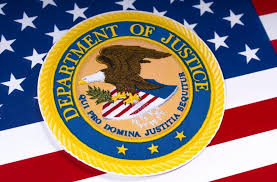DOJ’s Criminal Division Issues Three-Year Pilot Program for Corporate Compensation Systems and Clawbacks (Part II of III)

The Justice Department is focusing with a laser beam on corporate incentives and disincentives. This truly is a remarkable initiative and companies should undertake their own holistic review of internal incentives and disincentives. For years, we have heard about corporate incentives to achieve earnings and how sales rewards can unintentionally distort compliance.
Under the new Pilot Program, DOJ is offering significant financial benefits to corporations that target corporate wrongdoers for clawbacks of bonuses and other financial recoupoment. In doing so, DOJ is attempting to reduce the burden on corporate shareholders and punish the individual wrongdoers. At the end of the three-year Pilot Program, the Criminal Division will decide whether to extend, modify or terminate the program.
DOJ’s bottom line hope is that the prospect of clawbacks and financial penalties against individual wrongdoers will deter and prevent executives and employees from engaging in misconduct, and incentivize effective compliance programs and ethical cultures. In crafting the Pilot Program. DOJ consulted with other agencies, the defense bar, academics and experts on executive compensation in crafting the Pilot Program.

The Pilot Program will work as follows:
When entering into criminal resolutions, companies will now be required to implement a compliance-based compensation and bonus program and report to DOJ on the implementation and operation of the program during the term of the deferred prosecution agreement.
To incentivize companies to create such programs, the Pilot Program offers potential reductions in fines when companies seek to recoup compensation for culpable employees.
The Pilot Program definition of culpable employees is broad and extends to employees who both (a) had supervisory authority over the employee(s) or business area engaged in the misconduct and (b) knew of, or were willfully blind to, the misconduct.
The Pilot Program will require companies to implement criteria related to compliance in its compensation and bonus system. These criteria may include (and are not limited to):
- Prohibition on bonuses for employees who do not satisfy compliance performance requirements;
- Disciplinary measures for “culpable employees” as defined above; and
- Incentives for employees who demonstrate full commitment to compliance processes and requirements.
Prosecutors will have discretion in how to fashion the requirements for the compliance-related compensation and bonus system. In crafting this requirement, companies will have to afford due consideration to the company’s existing compensation system, and any restrictions imposed by applicable law or regulations.

A company can earn a fine reduction when it fully cooperates, timely and appropriately remediates and demonstrates that it has implemented a program to recoup compensation from “culpable employees,” and the company has in good faith initiated the process to recoup such compensations before the time of resolution. Specifically, DOJ reduce a penalty by 100 percent of the amount that is recouped from culpable employees. At the time of resolution, a company will be permitted to pay the original criminal fine less 100 percent of the amount of compensation the company is attempting to claw back. At the conclusion of the resolution term (e.g. deferred prosecution agreement), if a company has not recouped the full amount of compensation it sought to clawback, the company will be required to pay the clawback reduction minus 100 percent of the compensation actually recovered.
If a company’s good faith attempt to recoup any such compensation is unsuccessful, prosecutors may, in their discretion, reduce the repayment amount by 25 percent of the compensation that the company attempted to clawback but was unable to do so successfully. DOJ shall have “sole discretion” to determine a company’s good faith. For example, if the company attempts to recoup compensation against a limited number of individuals or a certain class of individuals, such as whistleblowers or those who cooperated with the government, such action may reflect the company’s bad faith.















